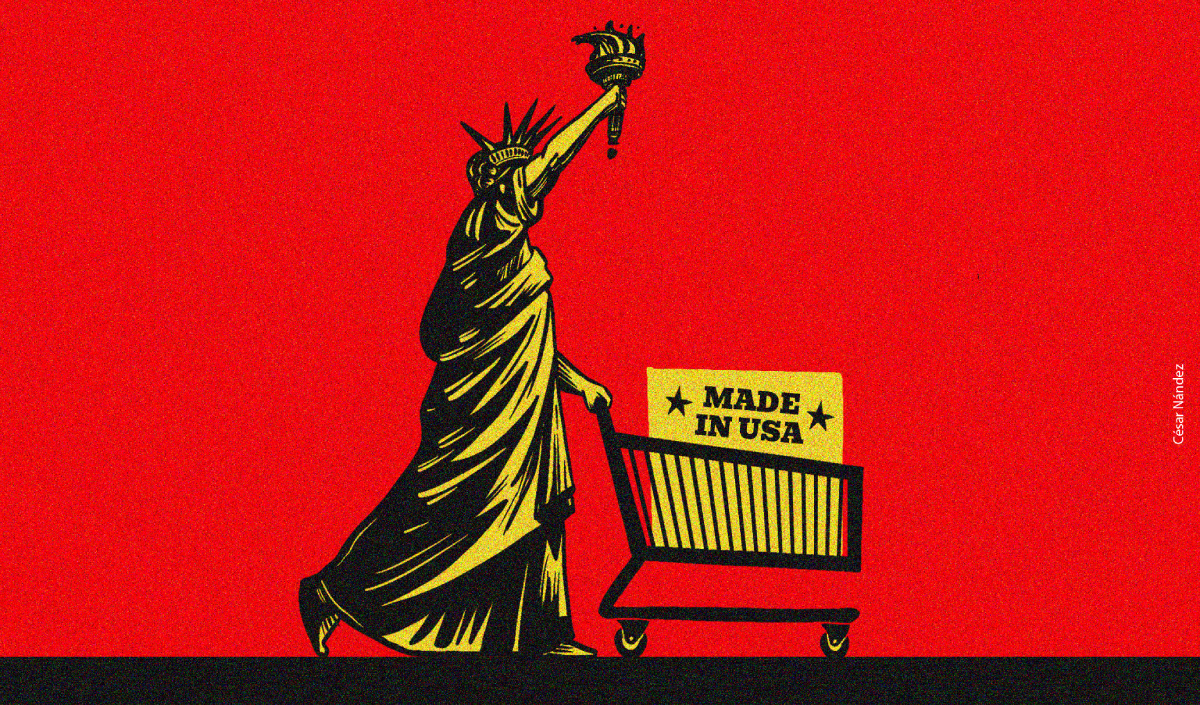In the 1950s, the Economic Commission for Latin America and the Caribbean (ECLAC), based on research by Raúl Prebisch, Hans Singer, and Celso Furtado, among others, questioned the convenience of anchoring participation in international trade based on the theory of comparative advantage and free trade. They developed the theory of unequal exchange to explain the structural deterioration in the terms of trade of those countries that, according to their comparative advantage, specialized in the production of agricultural products and raw materials.
This gave rise to what has become known as the ECLAC model. This consisted of promoting industrialization, making local production of previously imported industrial products profitable, by means of tariff protectionism and subsidies. Thus, Latin American countries chose not to wait for market forces and free trade to promote their industrialization at some point. Instead, they adopted the fundamentals of the import substitution industrialization (ISI) model proposed by the ECLAC model.
This distortion of market forces and this reliance on the visible hand of the state was not frowned upon by Washington and Western capitals. Communism thrived on poverty rather than on solid technical arguments. Therefore, not only was the developmentalist proposal of the ECLAC model not frowned upon, but it was also granted financial aid.
However, with the world economic crisis of the early 1980s and the rise to power of Ronald Reagan and Margaret Thatcher in the United States and the United Kingdom, respectively, the forces that had always believed in free trade and the law of comparative advantage, supported by the IMF and the World Bank, promoted the idea that the crisis in Latin America and other countries of the global South was the fault of the model suggested by ECLAC. A new consensus was imposed, the Washington Consensus, with indifference to the fact that the crisis affected rich and poor countries, many of which had never implemented the policies of the ECLAC model.
In our continent, those who continually search for the places where the sun warms the most, many of whom had been proponents and defenders of the ECLAC model when it was in vogue, suddenly became assiduous defenders of the new fashion: the neoliberalism of the Washington Consensus. The most prominent economists and leaders of the social democratic parties competed to see which one best defended that consensus, thus evaporating any conceptual difference with the right-wing parties.
China, in a context different from that of Latin America, has had economic and social success since Deng Xiaoping came to power, with eclectic economic policies, where, along with the market and private enterprise, strategies similar to the interventionism promoted by the ECLAC model have been put into practice. It has achieved economic growth rates higher than any other country and region in the world and has excluded more than 800 million of its inhabitants from poverty.
Its model, alien to both socialist and neoliberal orthodoxy, is so competitive that it has become a threat to the survival of large productive sectors of the main Western economies. For example, today China has appropriated 75% of the world’s clean energy industry.
Given this situation, one would have expected, given the claim of neoliberalism, that the United States and Western Europe would have eliminated any remnants of protectionism and state interventionism to defeat, with the invisible hand of the market, a Chinese economy in love with the visible hand of the state.
But this has not been the case. Once again, Western economies are appealing to state interventionism to protect their industries and markets. This has happened on many occasions. In the face of both the 2008 and more recent crises, instead of relying on market forces to drive the economy, nationalization, subsidies, and tax breaks have been invoked.
Since the Trump administration, the United States has deepened its distrust in the invisible hand of the market to compete with China. The tariff protectionism initiated in his administration has been deepened by President Biden, who recently imposed 100% import duties on some products. Today, both are seeking votes by fighting for protectionist stripes. In addition, with the Inflation Reduction Act (among others), the United States is transferring multi-million dollar subsidies to companies, not selected by the market but by the bureaucracy and politicians, in order to encourage the local production of goods considered strategic for the economic development of the United States.
The policies are not different from those that followed the ISI model. But this is not because the corridors of power in the United States have been infiltrated by ECLAC heretics. The reality is that advocating free trade has been opportunistic rather than technical. When they were promoted, it was intended to facilitate access to our markets for U.S. exporters, not to promote the development of poor countries.
The United States and Europe have been building excuses to justify their trade wars against China: first, it was alleged dumping, after it was security threats. The latest allegation is that China has productive overcapacity which, in the words of Treasury Secretary Janet Yellen, “can result in large volumes of exports at depressed prices”. However, when China was not yet so competitive, it was opened up to access to the World Trade Organization (2001) and welcomed into global value-added chains. This was even though China’s ideology was the same as it is today and its support for local production (dumping) was even more intense.
This is not the first time that mercantilist pragmatism has guided the trade policies of Washington and the more developed economies. When the United States imposes maximum quotas on meat and sugar exports or when Europe protects farmers in the Canary Islands with tariffs on our banana exports, what kind of dumping, what threat to security, and what productive overcapacity are generated in some countries of the continent? Which of these factors explain the multimillion-dollar subsidies that these powers grant to their agricultural sector?
I understand the contradictions between the claim and the practice coming from those successful countries; defending national interests is the first obligation of every ruler. Moreover, it is from the analysis of specificities and pragmatism and not from neoliberal or socialist dogmas that the policies of both the old successful countries and the new ones (Singapore, the Republic of Korea, Taiwan Province, China) have been nurtured. What I have never understood is how in our region so many people have swallowed the story, to the point of defending it as if it were a product of their own creation and the extreme ease with which they change their discourse according to what Washington recommends.
Well, that opportunist volatility could bear positive fruits today. Given the rebirth of the ECLAC model in Washington (Neo-ECLAC model?), I would not be surprised if we will soon hear the same local voices that promoted the Washington Consensus and defended to the hilt the FTAs drafted in the United States, flattering protectionism and state interference in market forces.
What is certain is that today, as Western economies try to compete with China by imitating its distorting model of market forces, technocrats at the World Bank and the International Monetary Fund and politicians in the United States have run out of the condescension with which they have promoted neoliberal policies and market orthodoxy in the world. Just as the failure of the Soviet Union showed the folly of communism, does the neo-ECLAC model rooted in Washington show the folly of neoliberalism?
*Translated by Janaína Ruviaro da Silva from the original in Spanish.













